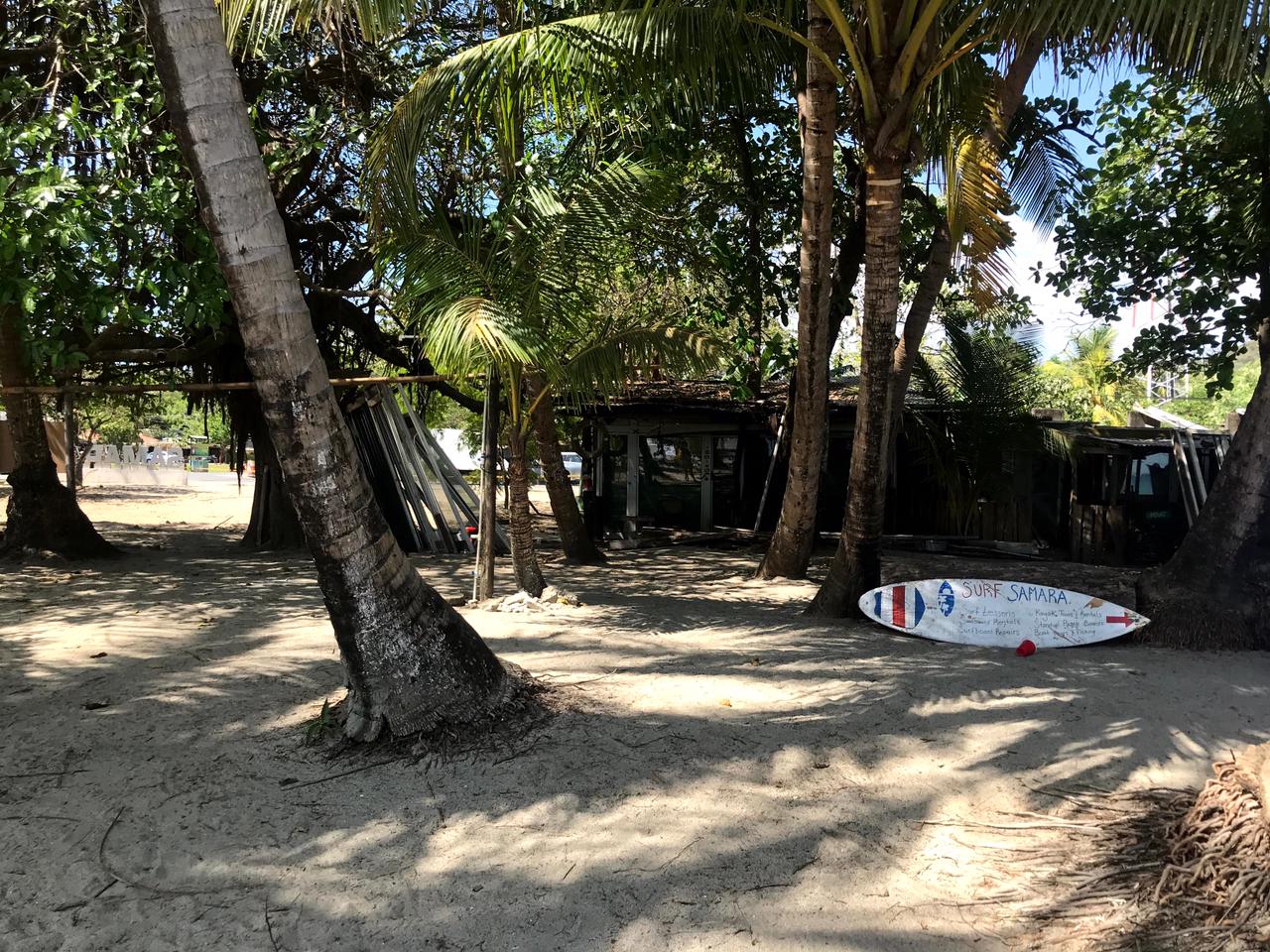
The Municipality of Nicoya has already notified a dozen restaurants and hotels to remove furniture, including tables and umbrellas, that they keep in the public area of the Maritime Land Zone (ZMT- Zona Marítimo Terrestre) in Samara. The mayor of this municipality, Carlos Armando Martinez, confirmed this during an interview with The Voice of Guanacaste.
With regard to the restaurants that are in the public area [of Samara], shops, plazas, hotels, they obviously don’t have permits and have already been subject to notification. It’s a process and there are a series of precarious situations that we are working hard on, and this is the beginning,” affirmed Martinez.
Notifications began to be sent out days after the municipality demolished seven unlicensed businesses at the beach entrance across from the district police station due to a judicial eviction order. The municipality fenced off the property and plans to build a commercial building with the necessary concessions. The structures that were destroyed didn’t have concessions, so they were considered illegal.
The Maritime Land Zone Law stipulates that the beach area is divided into two sections: the first 50 meters of public area, where no one can build or set up anything, and the restricted area, where the municipality can grant construction concessions. Currently the businesses’ tables and chairs are located in the first 50 meters of the coast.
Now the municipality has to wait for a period of time that hasn’t yet been defined, giving businesses a chance to remove the furniture that they keep in the public area of the beach of their own free will. Article 13 of the same law requires local governments to evict and demolish any infrastructure that is in the public beach area immediately after notification.
The Voice of Guanacaste visited the beach and can confirm that, as of the time when this article was written, none of the businesses have complied with the order.
The mayor emphasized that these are the first steps in addressing a series of irregularities in managing the Maritime Land Zone that the local government has allowed to drag on “for decades.”
The situation of the ZMT is serious. When we took office, we realized that we have a lack of businesses with expired concessions, of businesses who have been encroaching upon the public area for years, and it’s a problem that hasn’t been addressed fr years and due to that lack of attention, we have a complicated road to travel,” said the mayor.
For its part, the municipal council is also working on issues involving Samara Beach. During the sessin on March 2, the ZMT commission asked the municipality to deregister all of the businesses on the coast whose concessions have expired. They also asked him to start modifying the district’s regulatory plan.
Several voices in the canton have repeatedly extolled the need to update this document, which dates back to 1983 in the case of Samara’s coast. But why is it relevant to the issue? A regulatory plan is the fundamental instrument for organizing a canton’s territory. To put it simply, it’s a document that the local government and the community use to plan how the territory will be used and it also incorporates the rules of the game.
The Municipality of Nicoya is currently working on a new plan for the entire canton, which would regulate building done on the coasts of Nosara and Samara. According to the mayor, the project is in the study phase and he hopes it will be ready in four years.
In the meantime, the municipality will continue to investigate administrative irregularities within the coastal district’s ZMT, Martinez said. That way the local government can figure out what steps to take in the next few months.
We asked the ZMT manager for several reports. He was asked for them to understand what we should regulate and why we haven’t done it before. We also made an assessment based on an internal audit, and what it tells us is that [the management in] our maritime zone was deficient and neglected,” stated the mayor.




Comments